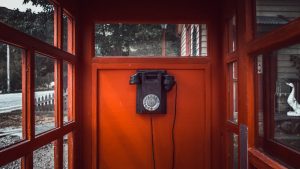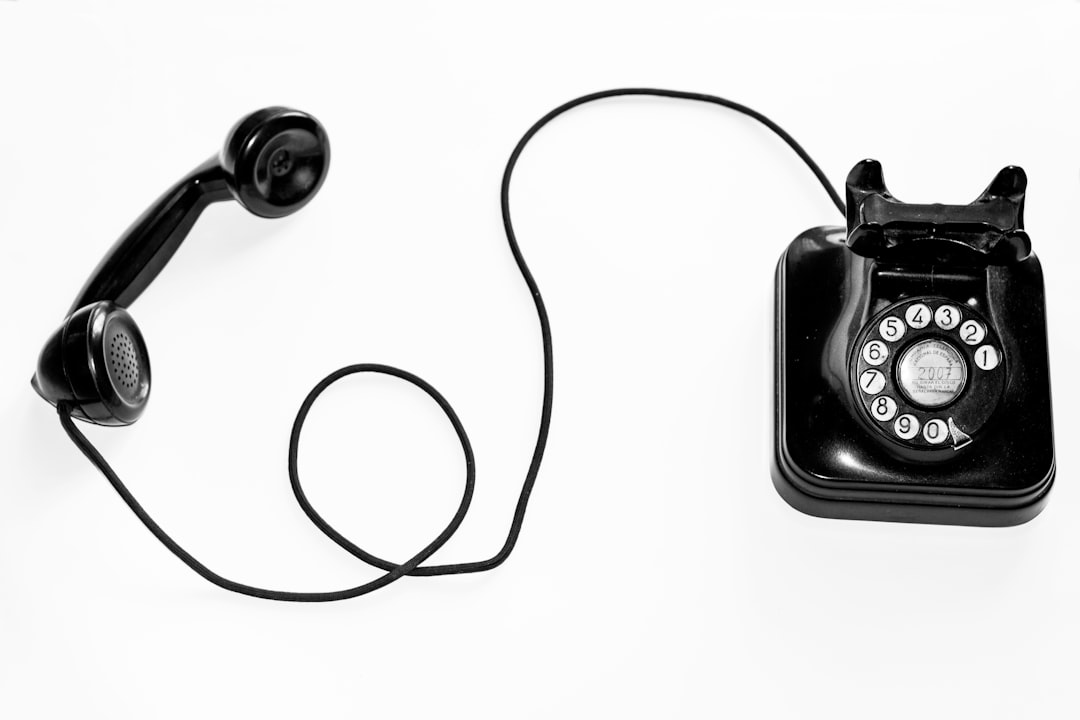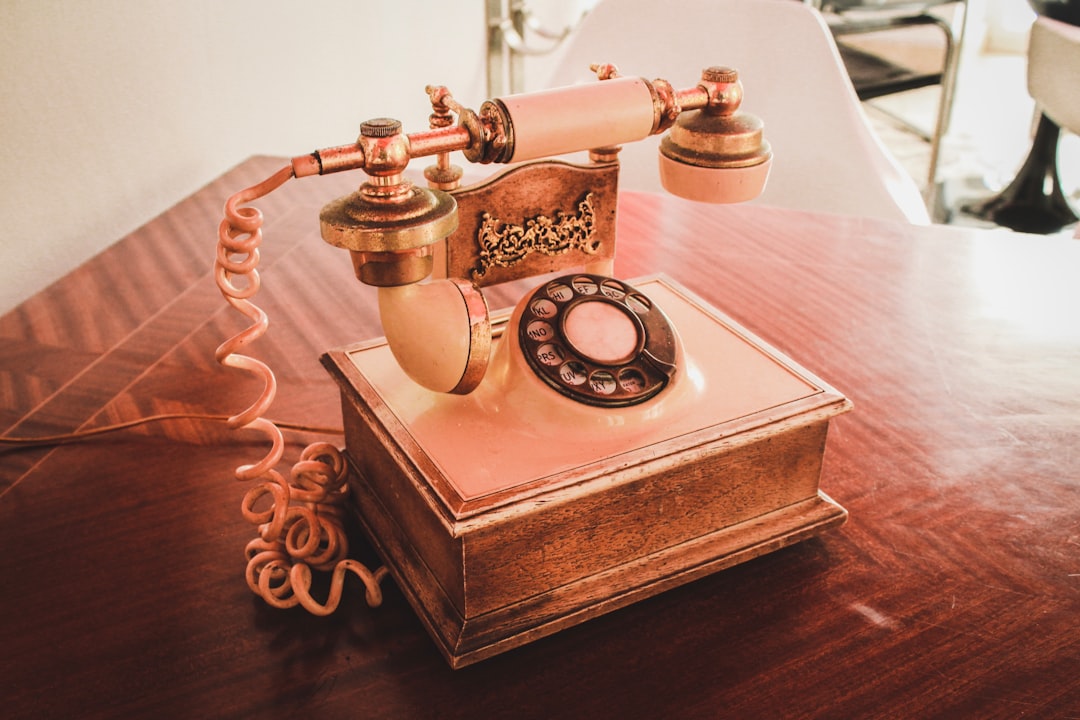In North Carolina, individuals receiving unwanted calls from debt collectors dialing the wrong number are protected under the Telephone Consumer Protection Act (TCPA). This federal law restricts telemarketing, robocalls, and unsolicited messages. If you're on the receiving end of such calls erroneously, know that you have rights against harassment through timing, frequency, and manner of communication. For tailored legal advice and representation, consult a debt collector calling wrong number lawyer or attorney NC, who specializes in TCPA litigation within North Carolina. These experts at established robocall law firms NC are skilled at handling these cases and can guide you on filing complaints or lawsuits. They offer robust representation to enforce your consumer rights, stop harassing calls, and seek compensation for any distress caused by illegal violations of the TCPA. Affected residents are encouraged to document all instances of unwanted calls and contact a skilled debt collector calling wrong number attorney NC for professional guidance and legal action against offending parties. Robocall lawyers and attorneys NC at reputable robocall law firms NC stand ready to protect your privacy and rights under the TCPA.
When the phone rings unexpectedly, it can be a source of annoyance or distress, particularly when it’s a debt collector dialing the wrong number. Residents of North Carolina facing such intrusions should be aware that they have rights under the Telephone Consumer Protection Act (TCPA). This article delves into understanding these rights, identifying how unwanted calls may constitute a violation of TCPA, and outlines the steps to take to address unlawful robocalls. For those seeking legal recourse, partnering with expert robocall lawyers and attorneys in North Carolina is crucial for protecting your rights against persistent and unauthorized automated phone calls. Key terms like “debt collector calling wrong number lawyer North Carolina” and “robocall attorney North Carolina” will guide you through the legal landscape to ensure your privacy and peace of mind are respected.
- Understanding Your Rights Under the Telephone Consumer Protection Act (TCPA) in North Carolina
- How a Debt Collector Calling the Wrong Number Violates TCPA in NC
- Steps to Take If You're a Victim of Unlawful Robocalls in North Carolina
- Partnering with Expert Robocall Lawyers and Attorneys in North Carolina for Legal Recourse
Understanding Your Rights Under the Telephone Consumer Protection Act (TCPA) in North Carolina
If you’ve received calls from debt collectors targeting the wrong number in North Carolina, it’s crucial to be aware of your rights under the Telephone Consumer Protection Act (TCPA). The TCPA was designed to safeguard consumers from unsolicited telemarketing calls and robocalls, as well as faxes and text messages sent without consent. In North Carolina, these protections are particularly relevant for individuals who have been contacted by debt collectors in error. The act sets clear guidelines on the timing, frequency, and manner of calls, ensuring that consumers are not subjected to harassment or invasive contact. If you’re dealing with such an issue, reaching out to a seasoned debt collector calling wrong number attorney in North Carolina can provide you with legal counsel tailored to your specific situation. These legal professionals, like the robocall lawyers and attorneys at reputable robocall law firms NC, understand the intricacies of TCPA litigation and can guide you through the process of filing a complaint or lawsuit if necessary. They work tirelessly to protect consumers’ rights and pursue legal action against entities that violate the TCPA, aiming to secure compensation for damages caused by such infractions.
How a Debt Collector Calling the Wrong Number Violates TCPA in NC
In North Carolina, the Telephone Consumer Protection Act (TCPA) serves as a safeguard against unwanted and illegal robocalls and debt collection attempts. A situation where a debt collector erroneously dials a wrong number can be particularly invasive and distressing for the recipient. Under the TCPA, it is explicitly prohibited for debt collectors to make automated calls, including robocalls, to telephone numbers assigned to persons other than the debtor. If a debt collector, whether through an autodialer or a pre-recorded voice message, reaches out to an individual who is not the intended debtor, this constitutes a violation of the TCPA. Affected parties in North Carolina have the right to seek legal recourse against such infractions. Engaging a Debt Collector Calling Wrong Number Lawyer or Attorney in NC can be instrumental in navigating the complexities of these laws and pursuing appropriate compensation for the nuisance and potential emotional distress caused by such violations. These legal professionals are well-versed in the TCPA regulations and can provide expert guidance on how to proceed with a case against a debt collector who has breached these protections. Additionally, reputable Robocall Lawyers and Robocall Attorneys in NC, working within Robocall Law Firms, offer robust representation to enforce your rights under the TCPA. They can initiate legal action on your behalf, aiming to stop the harassing calls and obtain monetary damages for each illegal call received. If you find yourself on the receiving end of a debt collector’s misdial in North Carolina, it is advisable to consult with a lawyer or attorney specializing in TCPA violations to protect your rights and privacy.
Steps to Take If You're a Victim of Unlawful Robocalls in North Carolina
If you’ve become a victim of unlawful robocalls in North Carolina, it’s crucial to take immediate action to protect your rights under the Telephone Consumer Protection Act (TCPA). One of the first steps is to document the calls meticulously. Keep records of the dates and times the robocalls occurred, the phone number from which they were made, and any messages left. This documentation can be vital should you decide to seek legal recourse.
For effective advocacy in such matters, consulting with a specialized attorney is advisable. In North Carolina, there are reputable lawyers and law firms experienced in handling cases involving debt collectors who contact the wrong number. These legal professionals, often referred to as debt collector calling wrong number attorneys or robocall lawyers NC, can assess your situation and guide you through the process of filing a complaint with the appropriate authorities, such as the North Carolina Attorney General’s Office or the Federal Communications Commission (FCC). Additionally, they can help you understand your rights and explore options for compensation. If the situation escalates, these legal experts are prepared to represent you in court to enforce the TCPA against offending parties. Robocall attorneys NC and robocall law firms NC specialize in navigating the complexities of consumer protection laws and will work diligently to safeguard your privacy and rights.
Partnering with Expert Robocall Lawyers and Attorneys in North Carolina for Legal Recourse
If you’ve received unwanted calls from debt collectors who have dialed the wrong number, it’s crucial to understand your rights under the Telephone Consumer Protection Act (TCPA). North Carolina residents facing such issues can find robust legal support by partnering with expert robocall lawyers and attorneys in the state. These legal professionals are well-versed in the TCPA and can provide guidance on how to proceed when a debt collector is calling the wrong number. In North Carolina, there are reputable law firms that specialize in protecting consumers from abusive or illegal robocalls. These lawyers and attorneys not only offer legal advice but also represent clients in court to seek compensation for any damages caused by such invasive calls. By engaging a debt collector calling wrong number attorney NC, you can assert your rights and pursue the appropriate legal recourse against violators. It’s important to document each instance of unwanted contact and reach out to a robocall lawyer or law firm NC as soon as possible to initiate a complaint and potential lawsuit under the TCPA. With the right legal representation, you can take effective action against these intrusions and work towards stopping the calls for good.






